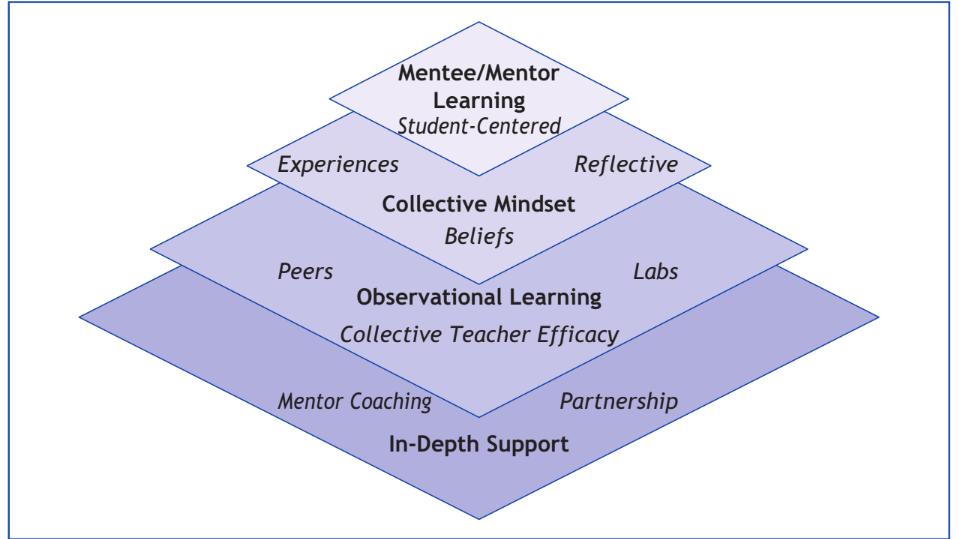The coaching duty I am running now makes me feel like I am walking on eggshells. As a coach, I am highly aware of what to do and what not to and, if someone asks, I can make a list of those very quickly. I can manage the whole process, meet the teacher, spot the must-be-supported zones and act on it because I have the image of the bigger picture. There have been lots of standards published and when I need to assess my coachee’s performance, I can simply follow a rubric which I can even develop by myself. However, while there is no one to assess what I am assessing, it is so hard to develop the assessment criteria for myself, which is my greatest obstacle.
Throughout my undergraduate studies at the English Language Teaching department, I was always taught how important it is to self-reflect on the micro-teaching sessions we had. Self-reflection, in my own definition, can be considered a type of meta-analysis anyone can conduct to assess how they are performing at a task. Open University defines self-reflection as “it is like looking into a mirror and describing what you see. It is a way of assessing yourself, your ways of working and how you study” , while looking at a mirror every morning is an ordinary routine for most of us, it is highly difficult to face our flaws and decide to work on them. Therefore, for the most school of education students, it is hard to watch their micro-teaching recordings, hear the critics coming from their peers and, especially, do the self-criticism. More or less, in time, one gets familiar with developing self-reflection abilities and as a teacher, one knows that one should become open to self-reflection and criticism.
A third eye always matters in seeing the bigger picture, thus, instructional coaches focus on both the teacher’s and the students’ development where they become the third eye in this scenario. Given that, who do you think would be the third eye to see the bigger picture for the coaches? Don’t we also think that self-reflection is effective for coaches?
Meta-analysis can be conducted after the compilation of self-reflection data to evaluate the overall performance. Coaches can become mentees of teacher mentors or instructional leaders to get professional help while self-reflecting and evaluating themselves. Taking the students at the centre, the mentor-coaching cycle can provide coaches to gain different insights of what they have been achieving and what areas need to be improved.

1- Collective Mindset
Mentoring the coach cycle starts with a collective mindset where the mentor and coach share their experiences and reflect on them. For this initial step, I highly recommend running a SWOT analysis where both get to have a clear picture of their identities in this cycle. Beliefs and values can also be discussed to see the areas of change. SWOT analysis will provide the mentor and the coach a chance to see that there are actually many things operating as they are supposed to and there are opportunities that might work to get rid of the threats and turn weaknesses into strengths. This step will require teamwork and brainstorming on the past, present and future and will support the coaches to become more of a collaborator and professional learning facilitators as ISTE Coaching Standards suggest.
2- Observational Learning
This stage is where the collaborative practice takes place. The mentor can step in the actual process while the coach is coaching the teacher. Like in co-teaching, a co-coaching model will let the coach see how another coach works and run a self-comparison analysis. Seeing how other coaches work might remind the coach to review and refresh their own coaching styles and it is significantly important to be up to date. Not only in the practice itself but also before the practice during the planning of the coaching program can be a part of the mentor-coach cycle. Keeping a padlet journal is considered a useful idea to observe the self-learning process. Recording the coaching session and watching the recording with the mentor will make self-criticism easier for the coach and can provide reliable data for the mentor to give feedback on. To go further, uploading that recording on Edpuzzle and taking notes on the specific time spots will help the coach to refer to them as many times as they want.
3- In Depth Support
The last step of the cycle is the step where the meta-analysis data can be collected by the coach to define the criteria and work on them. With the help of the mentor, the coach who already recognized what they have accomplished so far and what else needs to be improved now will start to evaluate how to use those qualitative data to work on themselves and assess the improved or revised performance.
The self-reflections can have a significant effect on the coaches regarding their personal development. Acceptance of criticism, learning how to provide constructive feedback for yourself and thinking functionally to work on yourself will move the coach to the next level in their own career. Certainly, the whole cycle will affect the teachers’ and then the students’ success. The key here is to keep track of a healthy cycle where the other steps are also positively affected when one step is improved. Killon (2017) suggests that coaching teachers have positive and significant effects on students’ success. Supporting that, good coaching surely increases both the teachers’ and the students’ success. For sure, it is always high time to watch our coaching session recordings without fear to initiate our meta-analysis.
References
Kraft, M.A., Blazar, D., Hogan*, D. (2018). The effect of teaching coaching on instruction and achievement: A meta-analysis of the causal evidence. Review of Educational Research, 88(4), 547-588
Joellen, K., (2017). Meta-analysis reveals coaching’s positive impact on instruction and achievement. The Learning Professional.
Brueggeman, A., (2022). Student-centered mentoring. Corwin.


